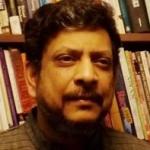Government at the Grassroots in India: Findings from a Case Study
About the Speaker:
Rashmi Sharma retired from the Indian Administrative Service in 2017. She has worked and published extensively in the areas of elementary education and local self-government in India. She is currently engaged in researching and writing about the structure and working of government at the grassroots levels. She is a CASI Spring 2018 Visiting Fellow.




